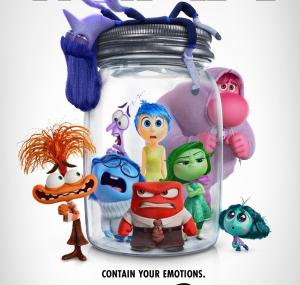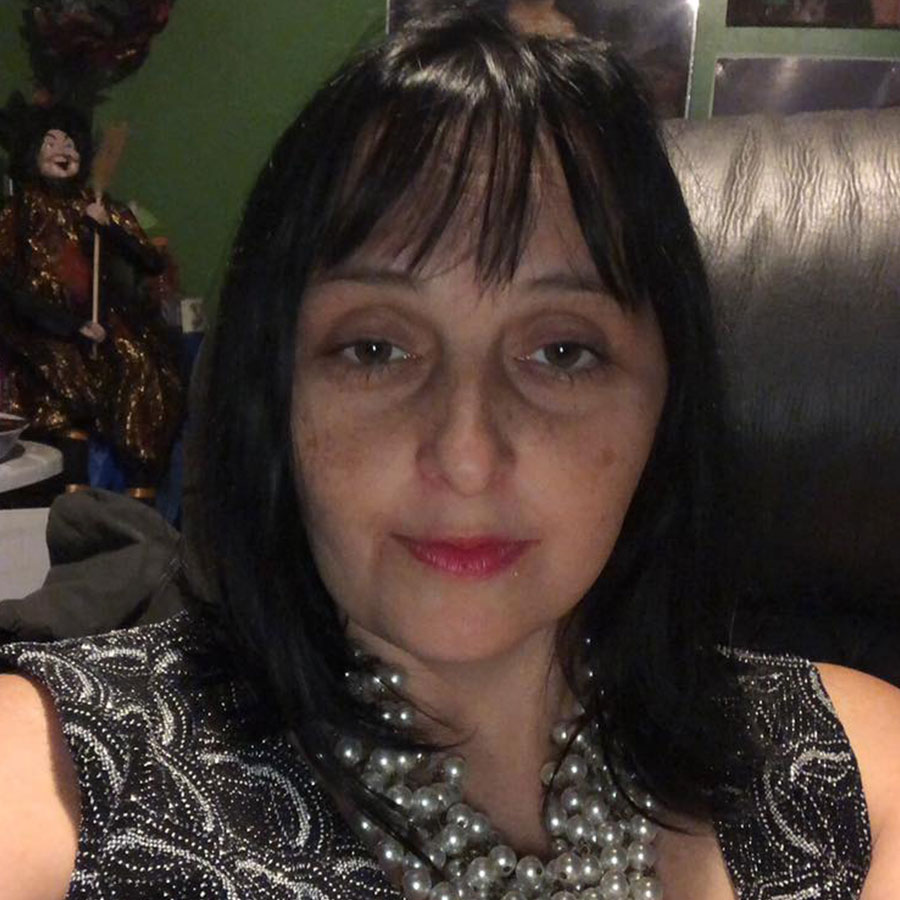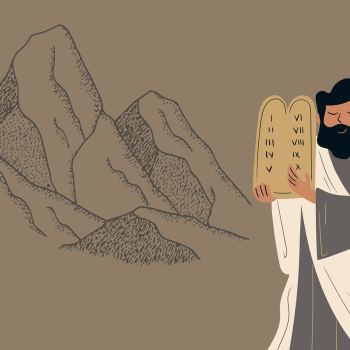
Patheos has partnered with Skylight.org to celebrate the release of Inside Out 2 and explore the intersection of mental and spiritual health presented in the film. As part of that collaboration, I viewed Inside Out 2 at the theater, when it opened on June 14th, 2024 to examine the film from a Jewish perspective. I was pleasantly surprised to find that the film showcased many ideas about mental and spiritual health found in Judaism. Further, Disney did a fantastic job of portraying how mental and spiritual health are connected, in a way children and teens could easily understand.
The Plot Of Inside Out 2
Riley is a young girl who just turned 13. The movie focuses on the functioning of Riley’s brain. At the control panel of her brain are her emotions, personified as characters. Up to this point, Riley’s emotions: Joy, Sadness, Anger, Fear, and Disgust have been able to maintain Riley’s mental health and self-image, but all that is about to change. When Riley hits puberty new characters arrive: Anxiety, Envy, Embarrassment, and Boredom. These emotions prove to be more difficult for Riley.
When Anxiety takes over, banishing the old emotions and creating a new sense of self, Riley’s world is turned upside down. The old emotions must venture to the Deep Mind, find Riley’s old sense of self, and return all repressed memories and emotions to save the day. With all her memories and emotions merged finally, Riley returns to a joyful life, learns to choose which emotions have control at any moment, and learns self-love.
Anxiety
Just like in the movie, anxiety takes over in real life. It will not allow us to explore other ideas or feelings. Anxiety makes us doubt ourselves, stress, and behave differently. Soon, like Riley, we start to make decisions that are unlike our normal selves which can be damaging to our lives.
Most of us experience some level of anxiety. As Riley finds out, even negative emotions like anxiety have their function. Anxiety can help us win a hockey match or study for that upcoming Spanish test.
However, if anxiety starts to take over your brain and make life difficult, it is time to seek help. A good place to start is Skylight.org’s anxiety page. Skylight.org seeks to help young adults understand and heal from anxiety and other mental health issues through the combination of mental and spiritual wellness techniques. They may be able to help you too.
Another way to deal with anxiety is to use our belief system. Inside Out 2 showed how our beliefs change who we are and affect our mental well-being. Like Riley, when we add new memories to our core beliefs we begin to change. Riley began to change for the worse when anxiety started to add new core memories and beliefs to the belief system, causing doubt and low self-esteem. Which emotions are you allowing to modify your belief system? Is Anxiety in control?
Inside Out 2 From A Jewish Perspective
Inside Out 2 From A Kabbalist Perspective
The good news is that as a Jewish person, you have quite a few tools in your belief system that help promote mental and spiritual wellness. Many of these tools can be seen in the movie Inside Out 2. The movie Inside Out 2, from a Jewish perspective, teaches us how to regain the truest purest form of ourselves. In the movie Inside Out 2, when the old emotions are suppressed by anxiety, they must venture to the deep mind to find Riley’s original sense of self. This reminded me of Kabbalah.
Kabbalah calls upon us to explore our inner selves. Kabbalah urges us to remember who we really are. We must remember that we are one with others and with G-d. Through climbing the tree of life, we find our true purest self, that which we had forgotten. Though Riley’s friends took an alternate route (stream of consciousness) to the deep mind, the outcomes are very much the same. They rediscovered Riley’s true self, just as we rediscover our true selves. Indeed Riley’s repressed emotions following the stream of consciousness could be seen as the meditation we do in Kabbalah study.
Inside Out 2 From A Torah Perspective
Numbers 5
Once in the deep mind, Riley’s suppressed emotions are confronted with a mountain of suppressed negative memories. The emotions realize the only way to get Riley’s true self back to the command center involves allowing these negative memories to join the belief system. Only when Riley remembers both the good and the bad, she has done can she truly be a happy and better person. Torah teaches us the same. Numbers 5 reads:
“Speak to the Israelites: When men or women individually commit any wrong toward a fellow human being, thus breaking faith with יהוה, and they realize their guilt,וְהִתְוַדּ֗וּ אֶֽת־חַטָּאתָם֮ אֲשֶׁ֣ר עָשׂוּ֒ וְהֵשִׁ֤יב אֶת־אֲשָׁמוֹ֙ בְּרֹאשׁ֔וֹ וַחֲמִישִׁת֖וֹ יֹסֵ֣ף עָלָ֑יו וְנָתַ֕ן לַאֲשֶׁ֖ר אָשַׁ֥ם לֽוֹ׃
they shall confess the wrong that they have done. They shall make restitution in the principal amount and add one-fifth to it, giving it to the one who was wronged.וְאִם־אֵ֨ין לָאִ֜ישׁ גֹּאֵ֗ל לְהָשִׁ֤יב הָאָשָׁם֙ אֵלָ֔יו הָאָשָׁ֛ם הַמּוּשָׁ֥ב לַיהֹוָ֖ה לַכֹּהֵ֑ן מִלְּבַ֗ד אֵ֚יל הַכִּפֻּרִ֔ים אֲשֶׁ֥ר יְכַפֶּר־בּ֖וֹ עָלָֽיו׃
If that party [is deceased and] has no kin to whom restitution can be made, the amount repaid shall go to יהוה for the priest—in addition to the ram of expiation with which expiation is made on their behalf.”
Numbers 5 Commentary
We are not told to ignore and forget the bad we have done. Instead, we should confess and make amends. This is exactly what Riley does in the movie when she apologizes to her two best friends whom she had ignored for a popular girl. We must remember the wrong we have done so that we can make amends. It is important that we accept that we do make mistakes. Everyone does. The Torah does not say if the men and women commit any wrong. The Torah says WHEN. G-d knows that we will mess up. All that he asks is that when we do make a mistake, we remember our mistake and make restitution. A person who represses and denies their wrongs as Riley had in the movie can never be truly whole.
Self-Love
Once Riley’s suppressed memories and emotions rejoined her conscious mind, all her emotions decided to love all of her. Her emotions made a decision to love both the good and the bad. Riley had learned self-love.
The Torah teaches us we must love ourselves. Leviticus 19:18 reads, “Do not seek revenge or bear a grudge against anyone among your people, but love your neighbor as yourself. I am the LORD.” At first, it seems this verse is speaking only about loving others. While it is certainly about loving others, this verse also tells us we cannot love the other unless we first love ourselves. Self-love is critical to our ability to be able to love others and live a joyous peaceful life. Riley found this out in the movie. When she didn’t love herself or really even know who she was, she hurt her best friends. However, when Riley began to love and accept herself, she made amends to those she had hurt and became grateful for their place in her life. Through loving herself she was able to appropriately love her friends.
Emotional Intelligence
Another amazing thing happened once Riley learned to love herself. She learned how to choose the emotion she wanted to be in control at any given moment. She called Joy forth.
One of the things that sets the Jewish faith apart from many others is our focus on action and rituals rather than thoughts and feelings. Of course, we have thoughts and feelings like everyone else, positive and negative. Yet, Jews understand that it is not what we think or feel that matters, but how we react to those thoughts and feelings.
My private thoughts hurt no one until I speak it or act upon it. At that point, my private world invades the lives of others. Therefore, how I respond to my emotions is where the focus should be. I must learn to control which emotions have control of my mind and how I respond to those emotions, or like Riley, I risk damaging others. By recognizing our emotions and choosing which we allow to be in control we are able to engage with others in a way that does no harm. The Torah rarely tells us what to feel. Rather, The Torah tells us how to respond to the feelings we have. The Torah is focused on right behavior, but right behavior comes by being aware of and in control of our emotions.
Conclusion
Inside Out 2 from a Jewish perspective is about diving into our true selves and taking responsibility for what we find there. Through this process, we find wholeness, self-love, and that we are we are one with creation and our creator. We must examine our inner belief system because that belief system has a direct effect on our mental and spiritual well-being. Through self-examination, we can learn to accept and love ourselves which will result in right behavior and a better relationship with the outer world. Be sure to see Inside Out 2! It is a very spiritual movie. If you are struggling with controlling your emotions, be sure to seek professional help. In the meantime, Skylight.org may be able to offer you tools to improve your mental and spiritual health.















